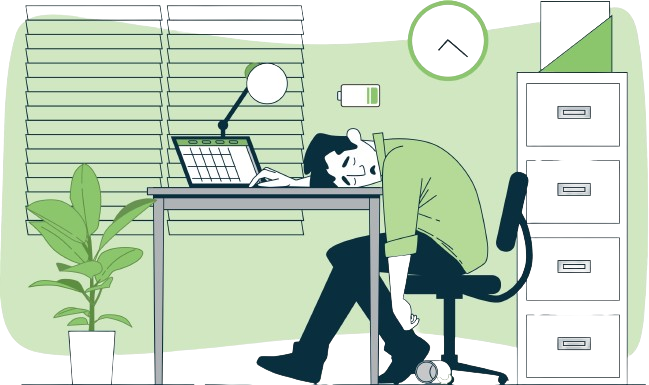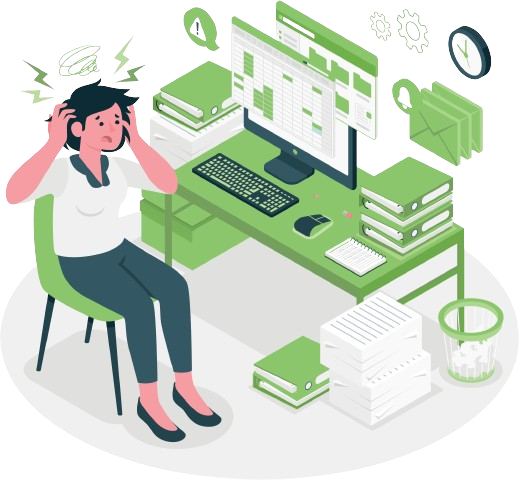IRDAI Registration No. : 016 Valid Till : 15-05-2026 , CIN Number: U85199KA2002PTC030218
Anger is usually seen as a negative emotion that someone needs to “get control” over and in some instances, that is true. It can be destructive, but are we really giving it a chance to listen to what our anger tells us.
We all know what it feels like to be on the wrong end of someone’s rage attack. Because of this, many people remain out of touch with what they were feeling, and a lot of anger went hidden and suppressed. It did not mean that people were not angry; it just meant that the people weren’t given helpful ways to work it out, especially to those people who had been really hurt in life and were sitting on a lot of pain and anger.
About the same time, the world of psychiatry is getting into the understanding that hidden anger can cause sickness, and play a major role in a lot of psychiatric problems, like mood problems, procrastination, and blocks of intimacy, among others. So there is a big push observed in today’s time in assertive training and much emphasis is given on “getting the anger out.”
Anger is a situation where we are not satisfied with the expected result so it comes out like a whirlwind and goes off. In our anger our tongue works faster than the mind. Sometimes we even don’t know why we are angry. The reason is that we all have been taught that getting angry is bad and we should not practice it. So, we just pretend to be happy and suppress all our negative emotions which are bound to come. The truth is that we can control our anger but we can’t stop it. We can follow let go policy and forgiveness and laugh our anger out. Initially it seems hard, but once practiced, it becomes very easy.

So, don’t worry, it is not bad to speak up rather keeping it to yourself will make you more frustrated and fussy. Even studies claim that those who release their emotions have fewer chances of heart-related ailments like stroke or heart attacks than those who suppress them. We can compare it with an analogy as – we celebrate, when we are happy; we cry, when we are sad then why not shout out, when we are angry. Suppression of emotions or anger is not at all a good idea because it is like a sponge, the harder you press, the better and sooner it will regain its shape. Therefore, releasing of your anger is very important either by healthy conversation or any other mean, but you don’t store all negative emotions inside you. Releasing them is like cleaning or detoxifying your internal self.
Sometimes knowing the root cause of the disturbed emotions becomes helpful, so just reach out to the person and tell him about what is bothering you. If your bond is strong and rooted well, the person will return to you with a better understanding. When we feel sorry we learn something new which is referred to as a new beginning.
There is a saying that destruction is a part of construction so let it be. Always release your anger by whichever way that suits you, but never store it back in your system. Feel the freshness and the lighter inner self after its escape.

Any conflict between job demands on the employee and the amount of control an employee has over meeting these demands can give birth to stress, commonly known as “workplace stress."
Stress is a highly personalized phenomenon and thus, can vary widely even in identical situations for different reasons. The severity of job stress depends on the magnitude of the demands that are being made and the individual’s sense of control or decision-making latitude he or she has in dealing with them. The research studies conducted on the same model also confirms that the worker’s who perceive that they are subjected to high demands, are at higher risk of cardiovascular disease.
In today's economic mayhem, phenomena’s like downsizing, layoff, merger and bankruptcies, have cost thousands of workers their jobs. Millions of others have shifted to unfamiliar tasks within their companies which questions their longevity in the organization. Moreover, extreme pressure is faced by the workers in terms of maintaining a harmonious relationship with the new bosses, computer surveillance of production, fewer health and retirement benefits, and the feelings that they have to work longer and harder just to maintain their current economic status. Each level at the workplace is experiencing this increased tension and uncertainty.
The mere feeling of losing a job, can be devastating, can put the workers at risk for physical illness, marital strain, anxiety, depression and even suicide. Loss of a job affects every part of life, ranging from what time you get up in the morning, to which you see and what you can afford to do.
Cause of Work Place Stress:-
a) Organizational Causes:-
The top stressors for people in the workplace, in order of importance, are:-
1. Lack of participation in decision-making, in-effective management style and unpleasant work environments are some of the factors responsible for it. Almost half of employers report that the business performance is being affected by the stress of employees working long hours, and other impactful factors.
2. Working overtime can result in poor mental performance, increased illness & work place injuries.
3. Unclear work or conflicting roles and boundaries can also cause stress.
4. There are two other sources of stress, or buffers against stress: relationships at work, and the organizational culture. Managers who are critical, demanding, unsupportive or bullying create stress, whereas a positive social dimension of work and good team working reduces it.
b) Work / Life Issues:-
The downturned economy and corresponding job layoffs, salary cuts, and heavier workloads also add to the stress in worker’s professional as well as personal lives, especially as they confront strained financial issues and compressed time allotment for family obligations. Such type of work/life balance creates stress in the following ways:

How to cope up this stress:-
Everyone who has ever held a job has, at some point, felt the pressure of work-related stress. Any job can have stressful elements, even if you love what you do. When such work-related stress becomes chronic, it can be overwhelming or harmful to both physical and emotional health. The short term consequences to such response can be headaches, stomach-aches, sleep disturbances, short temper and difficulty concentration while the chronic stress can contribute to health conditions like depression, anxiety, insomnia, high blood pressure and a weakened immune system. Compounding the problem, people, people who experience excessive stress often deal with it in unhealthy ways such as overeating, eating unhealthy foods, smoking cigarettes or abusing drugs and alcohol.
Inner balance and resilience is paramount to us coping with the day to day pressures of life. Practices these 8’s to distress you
Content is sourced from public domain & is provided by Vidal Health for educational & informational purposes. It should not be considered as a substitute to medical advice. Vidal health makes every effort to ensure accuracy or completeness of editorial content, However we do not take responsibility for any errors, omission & also do not take responsibility to ensure that data, information of material is kept up to date. The views expressed in these articles are not necessarily those of Vidal Health. Reproduction, modification, storage in a retrieval system or retransmission, in any form or otherwise, for reason other than educational & for informational purposes are strictly prohibited without prior written permission of Vidal Health.
Corporate Office: Corporate Office: Vidal Health Insurance TPA Pvt. Ltd. First Floor, Tower No. 2, SJR I-Park, EPIP Zone, Whitefield, Bangalore - 560066
Phone : +91080-48057205
Email : customerservice@vidalhealth.com
